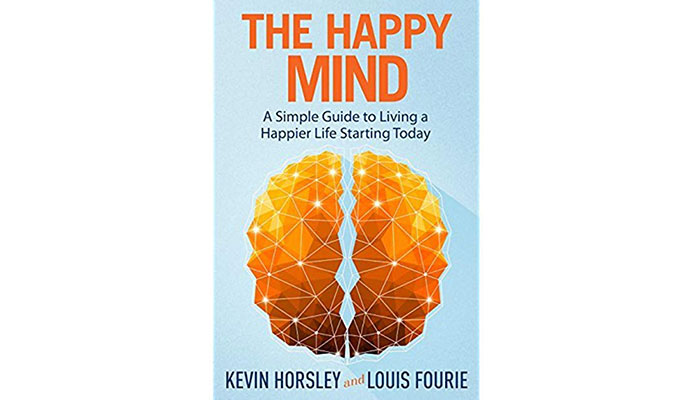The happy mind
'The Happy Mind' focuses on finding happiness in life using the power of your mind
October 06, 2019

This is the title of the book co-authored by Kevin Horsley, the ‘grandmaster of memory’.
There are at least four things that I learnt from the book. One: pleasure and happiness are not the same thing. Two: happiness does not depend on external factors. Three: happiness can only be found in the present (multi-billion dollar companies keep telling us that happiness is in the future – if we buy their product). Four: happiness is not delivered by other people.
We often “associate happiness with nouns, like cars, vacation destinations….or moments in time that mark a personal or professional triumph”. According to the authors, cars, gadgets and other things that money can buy “provide only temporary moments of pleasure.” And most of us often develop the impression that our happiness is tied to cars, gadgets and other things that money can buy. The authors believe that “the more you turn to external sources for happiness, the less happy you’ll be.”
Where shall we be looking for happiness? Answer: Neither in the past nor in the future. One “can only find happiness in the present because that is where the experience of life takes place.” We often look for happiness in the future-wining a lottery, finding the perfect job or buying a Ferrari. Some of us get “caught up in the past, lingering over memories of better days…..” A happy mind thinks about the here and now.
Yes, pleasure and happiness are not the same things. Pleasure is a sensation. Happiness is a state. Pleasure is short-lived. Happiness is long-lived. Pleasure is emotional. Happiness is inner peace. Pleasure depends on the activity of five senses. Happiness is inner calms. Pleasure comes from something external. Happiness is totally internal.
The authors are not saying that we should not indulge in activities that give us pleasure but should not confuse pleasure with happiness. According to Richard Davidson, one of the most influential neuroscientist in last 50 years, “Happiness can be learned at a biological level”. Big houses, fancy cars, massive TVs and stereos are ‘pleasurable sensations’ that according to the authors “will never add up to a satisfying or lasting state of happiness.”
Interestingly, happy people share similar traits, such as: they enjoy simple things in life (beautiful flowers, for instance); they are grateful for simple things in life (good health, for instance); they appreciate the things that they do have (instead of craving for things they do not have); they accept the uncertainty of life; they choose the right people to spend time with (positive relationships); they do not compare themselves with everyone else; they forgive easily; they celebrate the success of their friends; they do not try to change other people; they simplify their lives.
Then there are a few things that we should stop doing (if we want to be happy) such as: stop putting your happiness into external factors (like someone else’s hands); stop comparing yourself to others; stop ignoring your own needs; stop controlling others; stop living to others’ expectations; stop aiming for perfection.
Here’s the key problem: “If this happens, then I’ll be happy”. “I’ll be happy if I buy a Mercedes-Benz”. “I’ll be happy if I get that job”. This actually amounts to confusing pleasure with happiness. Someone intelligent once said, “I am careful not to confuse excellence with perfection. Excellence, I can reach for; perfection is God’s business.”
The writer is a columnist based in Islamabad.
Email: [email protected]
Twitter: @saleemfarrukh
Originally published in The News











